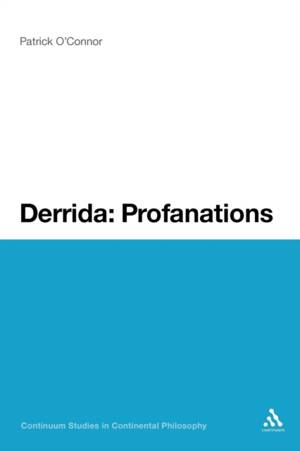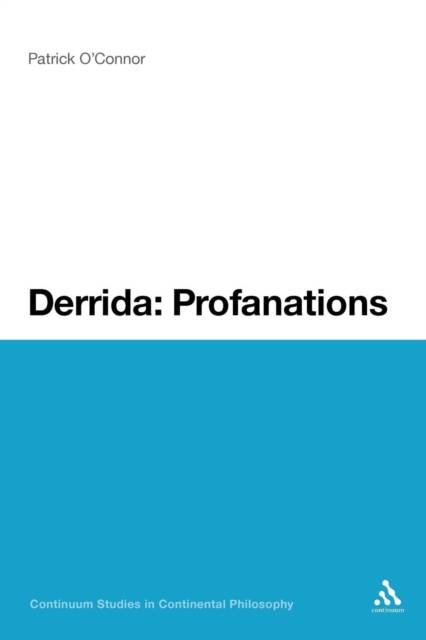
Je cadeautjes zeker op tijd in huis hebben voor de feestdagen? Kom langs in onze winkels en vind het perfecte geschenk!
- Afhalen na 1 uur in een winkel met voorraad
- Gratis thuislevering in België vanaf € 30
- Ruim aanbod met 7 miljoen producten
Je cadeautjes zeker op tijd in huis hebben voor de feestdagen? Kom langs in onze winkels en vind het perfecte geschenk!
- Afhalen na 1 uur in een winkel met voorraad
- Gratis thuislevering in België vanaf € 30
- Ruim aanbod met 7 miljoen producten
Zoeken
Omschrijving
Derrida: Profanations presents a re-appraisal of Jacques Derrida's deconstruction. If philosophy articulates what it means to be human, then deconstruction, which Patrick O'Connor argues consigns all existence to a mortal, profane and worldly life remains radically philosophical. The assertion demands an analysis of Derrida's radicalisation of the key philosophers who influenced him, as well as a rebuttal of theological accounts of deconstruction. This book closely examines how the phenomenological lineage is received in deconstruction, especially the relation between deconstruction and Derrida's radical readings of Hegel, Husserl, Levinas and Heidegger. This book presents a theorisation of deconstruction as profane, atheistic and egalitarian. It reveals how deconstruction holds the resources to think ontology as a multiplicity of worlds through demonstrates the ways in which Derrida expresses a phenomenology' which disjoints humans' orientation to the world. Deconstruction is characterized as radically hubristic. For deconstruction, nothing is sacred. If nothing sustains itself as separate, exclusive or sacrosanct, then nothing can sustain the implementation of its own hierarchy.
Specificaties
Betrokkenen
- Auteur(s):
- Uitgeverij:
Inhoud
- Aantal bladzijden:
- 224
- Taal:
- Engels
- Reeks:
- Reeksnummer:
- nr. 49
Eigenschappen
- Productcode (EAN):
- 9781441171351
- Verschijningsdatum:
- 16/02/2012
- Uitvoering:
- Paperback
- Formaat:
- Trade paperback (VS)
- Afmetingen:
- 156 mm x 234 mm
- Gewicht:
- 312 g

Alleen bij Standaard Boekhandel
+ 176 punten op je klantenkaart van Standaard Boekhandel
Beoordelingen
We publiceren alleen reviews die voldoen aan de voorwaarden voor reviews. Bekijk onze voorwaarden voor reviews.









